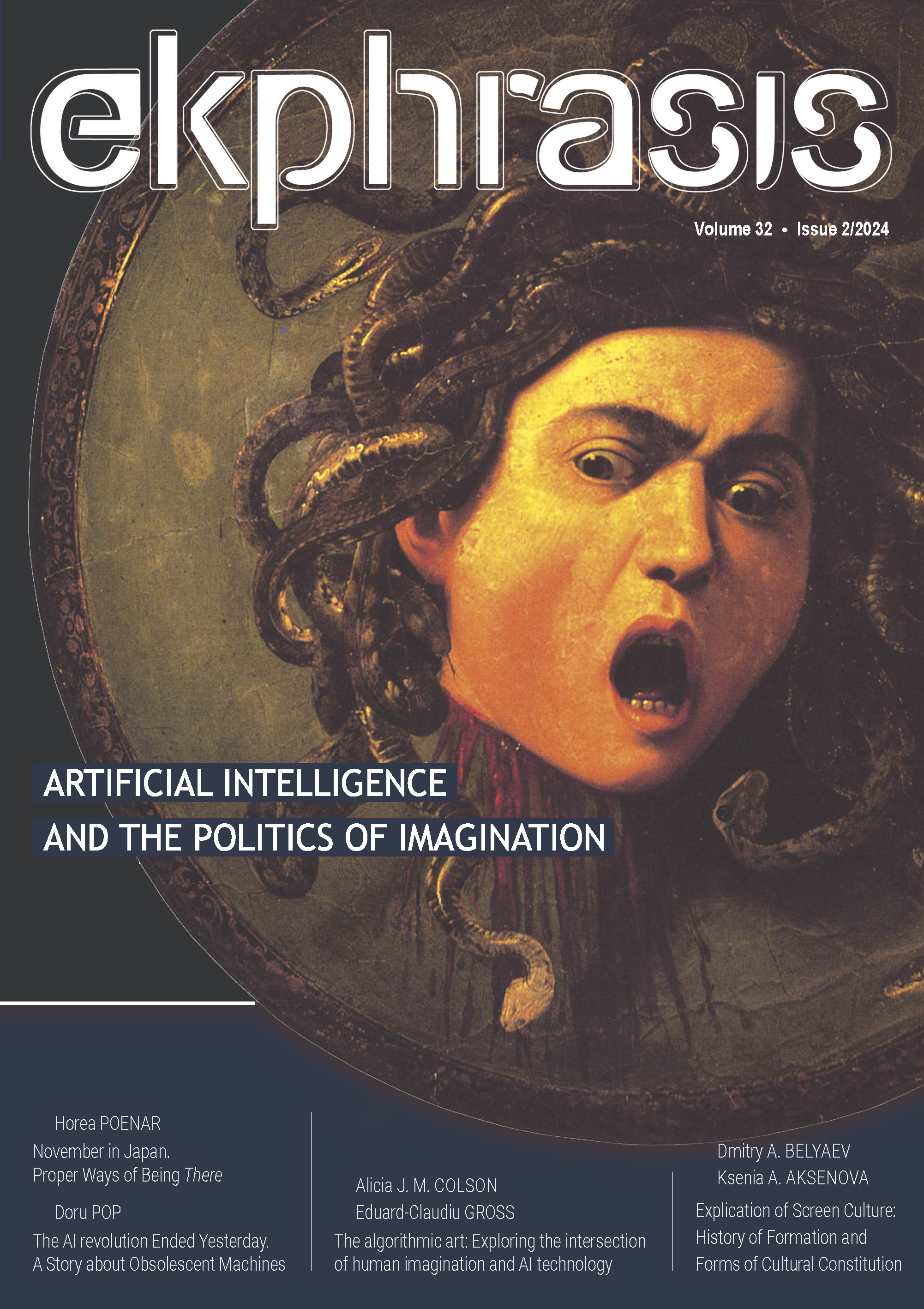The AI revolution Ended Yesterday. A Story about Obsolescent Machines
The AI revolution Ended Yesterday. A Story about Obsolescent Machines
Author(s): Doru PopSubject(s): Fine Arts / Performing Arts, Film / Cinema / Cinematography
Published by: Universitatea Babeş-Bolyai, Facultatea de Teatru si Televiziune
Keywords: Nomadology; Artificial intelligence; technological stagnation; techno-anxieties; cyberfeminism; science fiction films; Atlas (2024); The Creator (2023); The Beast (2023)
Summary/Abstract: Manifested as an attractive science fiction trope, the fear that artificial intelligence is going to be at war with homo sapiens, that human beings might be replaced by their own creations, are cultural anxieties amplifed by the technologies of the new millennium, with various autonomous systems driven by AI taking over our lives. Artificial intelligence seems to be everywhere, apparently changing humanity and even evolution. Overviewing three recent productions, Atlas (2024), The Creator (2023) and The Beast (2023), used as examples for showcasing a different approaches to problems related to machine intelligence, military power, political systems and human emotions, this contribution explores the various possible expressions of our deep distrust towards intelligent machines. Using a version of Deleuze and Guattari’s “nomadology”, the author proposes a NOMAD(ID)eological interpretation, a distinct methodological approach dealing with “nomadic” transformations of the future of mankind. As indicated by the evolutionof the cinematic machine patented by the Lumière brothers in 1864, we must observe that there is an inherent technological plateau for all human technologies. After 160 years existence, we are basically using the same cinema apparatus and, just as the “cinematographic revolution” faded from its very invention, the author suggests that the “AI revolution” has simultaneously reached its peak and utter end. The conclusion of this contribution, based on the theory of stagnation, remains that our fears about AI are based on the false premise that this new technology will result in an unexpected outcome. Using the comparison with the cinematic machine, AI technologies have reached their evolution potential from the very moment they were created, they are capable of endlessly generating parrot-like texts, allowing us to create funny images and videos, amusing us with their mimetic potential and incessantly calculating data that humans have created in the past.
Journal: Ekphrasis. Images, Cinema, Theory, Media
- Issue Year: 32/2024
- Issue No: 2
- Page Range: 9-47
- Page Count: 39
- Language: English

